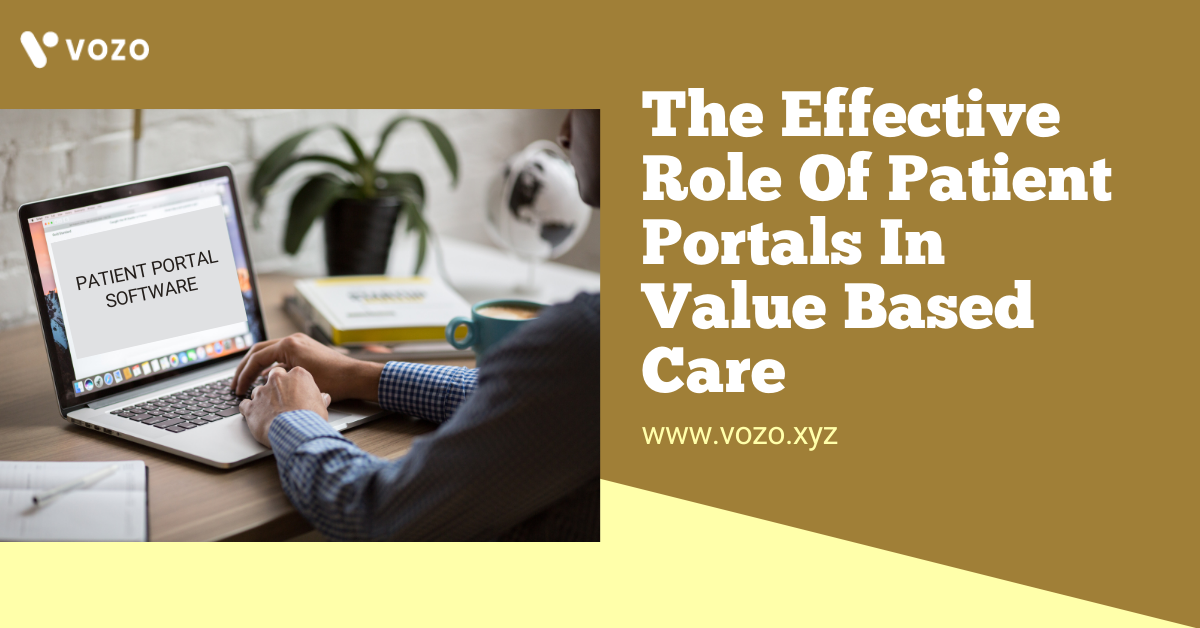The Effective Role Of Patient Portals In Value Based Care
It’s no secret that patient portals have changed the way patients approach their health and pushed for a more patient-centric health focus. With an emphasis on patient engagement, they provide doctors a means to document important information securely and share it with their patients, who can access it from anywhere.
As patients are increasingly tech-savvy and approaching their health care as consumers, it has become even more important for healthcare providers to integrate such powerful, technological engagement tools.
Patient Portals: Why it is so important today?
Over the last few years, patient portals have proven to be an essential tool in improving medications adherence, patient-provider communications and the move towards patient-centric care models.
They have also provided other benefits, including:
- Monitoring of patient engagement activity
- Access to health records in one place
- Facilitating communication
- Scheduling appointments online
- Providing patient education resources
Patient portals have helped patients proactively manage their health, giving them a broader picture of their records and the accessible tools and resources at their disposal to monitor their health.
Through EHR integrations, patient portals have also allowed healthcare professionals to do more by eliminating double entries. They allow practitioners to documents communicate and schedule appointments with their patients, all in one place. No need to contact staff to have them manually input the information in another system or ensure nothing falls through the cracks.
RELATED: How To Start Using Patient Portal Software?
Value-Based Care Initiatives
When it comes to value-based care initiatives, patient portals have played an important role. As opposed to practicing volumetric medicine, value-based care, or the focus on quality care, pushed providers to evaluate their offering in a different way.
- To move away from factory medicine, patient-focused practices aim to develop:
- Meaningful doctor-patient relationships
- Responsive medicine
- Better outcomes
- Increase access to care
- Access to relevant tools and resources
- Better communication
Through patient portals, clinics can centralize patient communications, appointments, medication refills and more. They allow 24/7 access to important medical information, providing an important step towards preventive medicine.
Pushing patient-focused care even further, some experts believe patient portals should go beyond the clinical visit itself and integrate social media initiatives. By doing so, this would allow practices and healthcare professionals to connect with their patients in more meaningful ways by providing additional information about the practice, their offerings or even certain medical articles.
Patient empowerment can be done through many initiatives, but ones that seem to work the best are ones that fit into a patient’s daily routine. By providing a platform that shares valuable information, it creates a knowledge base that physicians can leverage, and patients can follow. If a provider shares relevant articles with their diabetes patients, these patients can read them, link back to them and hopefully integrate tips and tricks into their daily routine.
Technology has a way to connect people and integrating it into a patient’s overall care experience is truly where the quality and value in health care can be harnessed.
RELATED: How To Engage Patients With Your Patient Portal Software?
Building a meaningful use stage 3 patient portal
Developing patient portal systems present significant adaptive challenges to any healthcare providers who earn payments through CMS. However once implemented, a patient portal that conforms to the best practices of meaningful use it will deliver vastly improved patient care.
It is not too late to achieve Stage 3 of meaningful for your organization. Implementing a patient portal that serves CMS, your organization and the best interests of patients is a significant but finite task. With the right development partner, your organization can make the transition with the least disruption and the maximum benefit to all stakeholders.
Conclusions
The transition to value-based care under the QPP, as defined by MACRA, is a strong incentive to drive the meaningful use of EHRs and patient portals for all Medicare and Medicaid healthcare providers.
Patient portals are changing the way that patients engage with healthcare providers at a fundamental level. Patient-facing websites make true value-based care possible for organizations that deliver care and integrate them with EHR systems.
The additional EHR incentives such as payment adjustments and penalties that arise from your MIPS scores make it imperative that you design and develop a portal that delivers the best value-based care solution for your patients.
What Can Vozo patient portals Do for You?
With Vozo patient portal software, healthcare practices can able to engage their patients with the best patient portal features. Schedule a quick demo with our experts today to know how we can help you in building your certified patient portal software.
About the author

With more than 4 years of experience in the dynamic healthcare technology landscape, Sid specializes in crafting compelling content on topics including EHR/EMR, patient portals, healthcare automation, remote patient monitoring, and health information exchange. His expertise lies in translating cutting-edge innovations and intricate topics into engaging narratives that resonate with diverse audiences.













